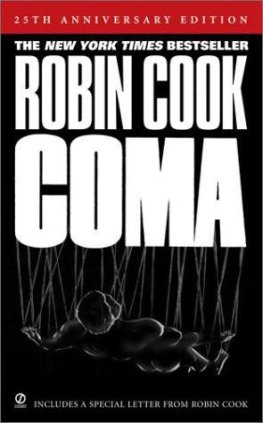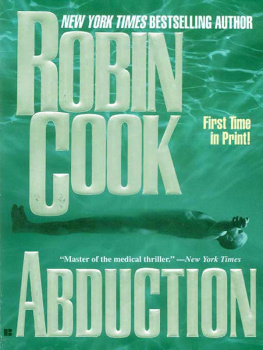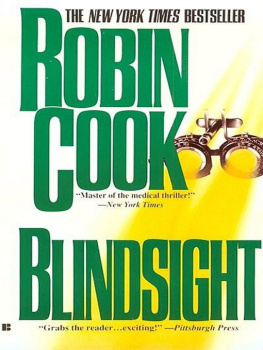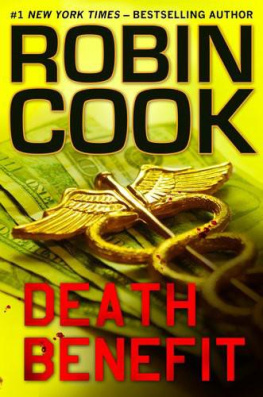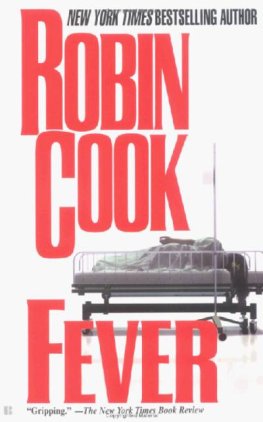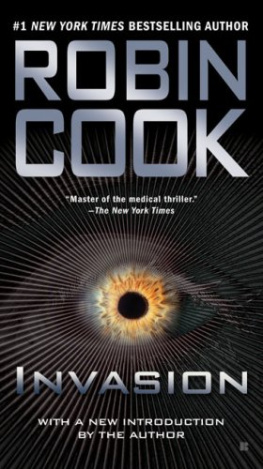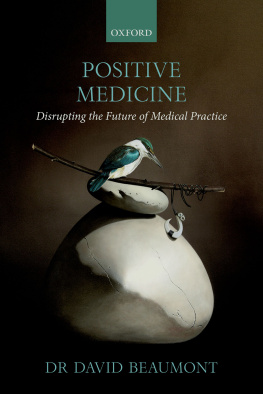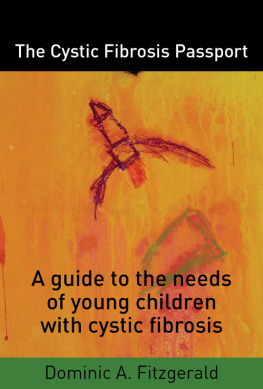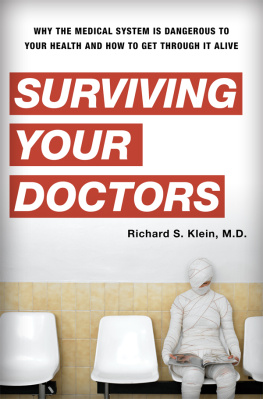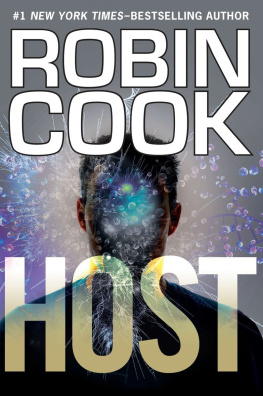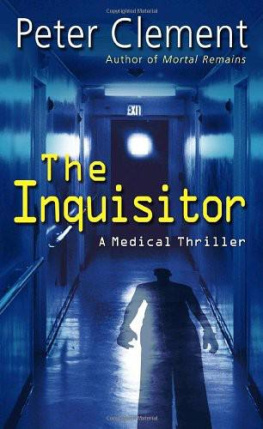
February seventeenth was a fateful day for Sam Flemming.
Sam considered himself an extremely lucky person. As a broker for one of the major Wall Street firms, he'd become wealthy by the age of forty-six. Then, like a gambler who knew when to quit, Sam had taken his earnings and fled north from the concrete canyons of New York to idyllic Bartlet, Vermont. There he'd begun to do what he'd always wanted to do: paint.
Part of Sam's good fortune had always been his health, yet at half past four on February seventeenth, something strange began to happen. Numerous water molecules within many of his cells began to split apart into two fragments: a relatively inoffensive hydrogen atom and a highly reactive, viciously destructive hydroxyl free radical.
As these molecular events transpired, Sam's cellular defenses were activated. But on this particular day those defenses against free radicals were quickly exhausted; even the antioxidant vitamins E, C, and beta carotene which he diligently took each day could not stem the sudden, overwhelming tide.
The hydroxyl free radicals began to nibble away at the core of Sam Flemming's body. Before long, the cell membranes of the affected cells began to leak fluid and electrolytes. At the same time some of the cells' protein enzymes were cleaved and inactivated. Even many DNA molecules were assaulted, and specific genes were damaged.
In his bed at Bartlet Community Hospital, Sam remained unaware of the high-stakes molecular battle within his cells. What he did notice was some of its sequelae: an elevation of his temperature, some digestive rumblings, and the beginnings of chest congestion.
Later that afternoon when Sam's surgeon, Dr. Portland, came in to see him, the doctor noted Sam's fever with disappointment and alarm. After listening to Sam's chest, Dr. Portland tried to tell Sam that a complication had apparently set in. Dr. Portland said that a touch of pneumonia was interfering with Sam's otherwise smooth recovery from the operation to repair his broken hip. But by then Sam had become apathetic and mildly disoriented. He didn't understand Dr. Portland's report on his status. The doctor's prescription for antibiotics and his assurances of a rapid recovery failed to register with him.
Worse still, the doctor's prognosis proved wrong. The prescribed antibiotic failed to stop the developing infection. Sam never recovered enough to appreciate the irony that he'd survived two muggings in New York City, a commuter plane crash in Westchester County, and a bad four-vehicle accident on the New Jersey Turnpike, only to die from complications arising from a fall on a patch of ice in front of Staley's Hardware Store on Main Street, Bartlet, Vermont.
THURSDAY, MARCH 18
Standing before Bartlet Community Hospital 's most important employees, Harold Traynor paused long enough to relish the moment. He'd just called the meeting to order. The group assembled-all heads of departments-had obediently fallen silent. All eyes were riveted on him. Traynor's dedication to his office as chairman of the hospital board was a point of pride. He savored moments such as this when it became clear his very presence inspired awe.
"Thank you all for coming out on this snowy evening. I've called this meeting to impress upon you how seriously the hospital board is taking the unfortunate assault on Nurse Prudence Huntington in the lower parking lot last week. The fact that the rape was thwarted by the serendipitous arrival of a member of the hospital security staff does not in any way lessen the seriousness of the offense."
Traynor paused, his eyes falling significantly on Patrick Swegler. The head of hospital security averted his gaze to avoid Traynor's accusatory glance. The attack on Miss Huntington had been the third such episode in the last year, and Swegler felt understandably responsible.
"These attacks must be stopped!" Traynor looked to Nancy Widner, the director of nursing. All three victims had been nurses under her supervision.
"The safety of our staff is a prime concern," Traynor said as his eyes jumped from Geraldine Polcari, head of dietary, to Gloria Suarez, head of housekeeping. "Consequently, the executive board has proposed the construction of a multi-storied parking facility to be built in the area of the lower parking lot. It will be directly attached to the main hospital building and will contain appropriate lighting and surveillance cameras."
Traynor gave Helen Beaton, president of the hospital, a nod. On his cue, Beaton lifted a cloth from the conference table to reveal a detailed architectural model of the existing hospital complex as well as the proposed addition: a massive, three-story structure protruding from the rear of the main building.
Amid exclamations of approval, Traynor stepped around the table to position himself next to the model. The hospital conference table was often a repository for medical paraphernalia under consideration for purchase. Traynor reached over to remove a rack of funnel-shaped test tubes so that the model could be better seen. Then he scanned his audience. All eyes were glued to the model; everyone except Werner Van Slyke had gotten to his feet.
Parking had always been a problem at Bartlet Community Hospital, especially in inclement weather. So Traynor knew that his proposed addition would be popular even before the recent string of attacks in the lower lot. He was pleased to see that his unveiling was progressing as successfully as he'd anticipated. The room was aglow with enthusiasm. Only sullen Van Slyke, the head of engineering and maintenance, remained impassive.
"What's the matter?" Traynor asked. "Doesn't this proposal meet with your approval?"
Van Slyke looked at Traynor, his expression still vacant.
"Well?" Traynor felt himself tense. Van Slyke had a way of irritating him. Traynor had never liked the man's laconic, unemotional nature.
"It's okay," Van Slyke said dully.
Before Traynor could respond the door to the conference room burst open and slammed against its stop on the floor. Everyone jumped, especially Traynor.
Standing in the doorway was Dennis Hodges, a vigorous, stocky seventy-year-old with rough-hewn features and weathered skin. His nose was rosy and bulbous, his beady eyes rheumy. He was dressed in a dark green boiled wool coat over creaseless corduroy trousers. On top of his head was a red plaid hunter's cap dusted with snow. In his raised left hand he was clutching a sheaf of papers.
There was no doubt Hodges was angry. He also smelled strongly of alcohol. His dark, gun-barrel-like eyes strafed the gathering, then trained in on Traynor.
"I want to talk to you about a few of my former patients, Traynor. You too, Beaton," Hodges said, throwing her a quick, disgusted look. "I don't know what kind of hospital you think you've been running here, but I can tell you I don't like it one bit!"
"Oh, no," Traynor muttered as soon as he'd recovered from Hodges' unexpected arrival. Irritation quickly overtook his shock. A rapid glance around the room assured him that the others were about as happy to see Hodges as he was.
"Dr. Hodges," Traynor began, forcing himself to be civil. "I think it is quite apparent that we are having a meeting here. If you will excuse us"
"I don't care what the hell you people are doing," Hodges snapped. "Whatever it is, it pales in respect to what you and the board have been up to with my patients." He stalked toward Traynor. Instinctively, Traynor leaned back. The smell of whiskey was intense.
"Dr. Hodges," Traynor said with obvious anger. "This is not the time for one of your interruptions. I'll be happy to meet with you tomorrow to talk about your grievances. Now if you will kindly leave and let us get on with our business"
Next page

